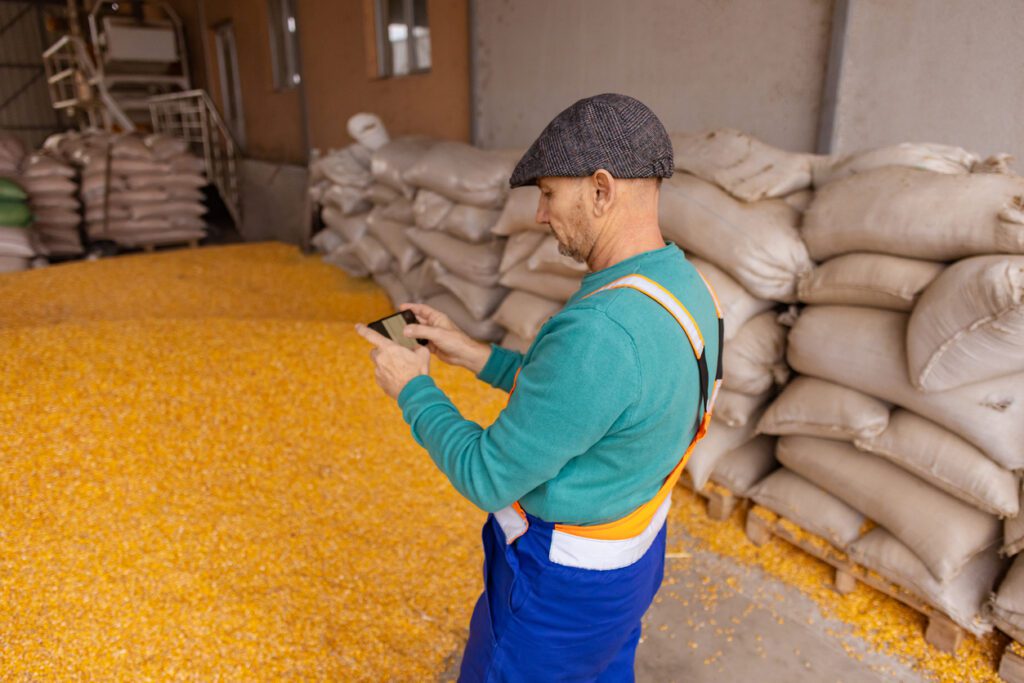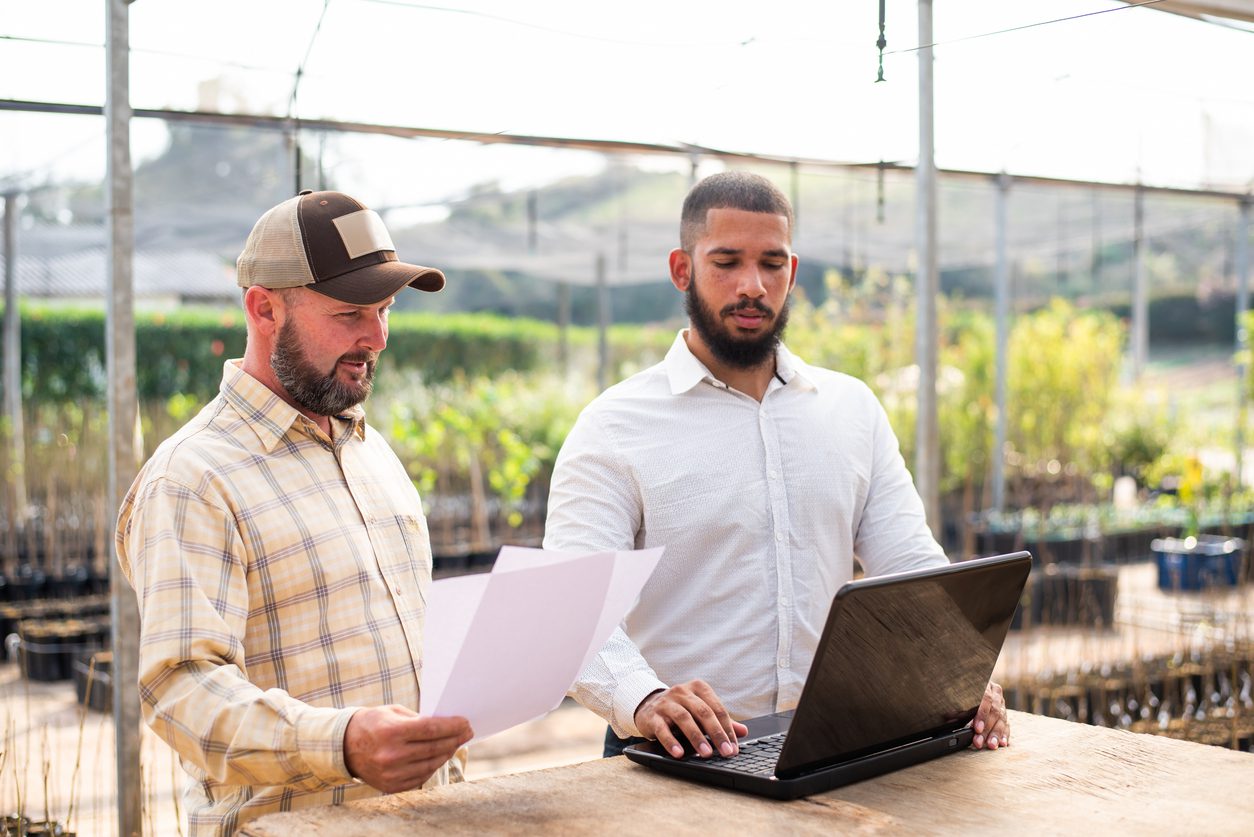7 Reliable Must-Haves for Your Farm Accounting Software
Running a Community Supported Agriculture (CSA) farm is as rewarding as it is demanding. Farmers are responsible not just for planting, harvesting, and distributing fresh produce, but also for managing memberships, planning delivery routes, and maintaining customer relationships. With so many moving parts, it’s easy to lose sight of one critical element: financial management—something that Delivery Biz Pro’s farm accounting software helps simplify.
For many farmers, bookkeeping gets pushed to the bottom of the list. Yet, good bookkeeping is a foundational element of any sustainable business. This is where reliable farm accounting software comes into play. The right software can help you accurately track expenses, manage revenue streams, simplify tax preparation, and make more informed business decisions.
With that in mind, what essential features should you look for in farm accounting software? This guide will explore 7 factors and discuss how the right software can become a cornerstone of your farm’s long-term success.
1. User-Friendly Interface and Easy Data Entry
Why Ease of Use Matters
Most farmers didn’t start their careers dreaming about spreadsheets or accounting ledgers. The reality, though, is that finances are every bit as important as soil quality. That’s why ease of use is one of the most important factors when choosing farm accounting software. For instance, Delivery Biz Pro’s intuitive dashboard makes tracking and reporting much easier to handle. The goal is not to add complexity, but to simplify recordkeeping and financial management so you can spend more time growing and selling.
A good program should allow quick, straightforward data entry. Whether you’re recording seed purchases, CSA subscriptions, or payroll expenses, entering this information should take only a few clicks. The best tools are designed with farmers in mind, so they feel less like accounting platforms and more like practical farm management tools.
How To Evaluate User Experience
Before committing to a program, test demo versions or free farm accounting software trials. This gives you hands-on experience with navigation and data entry. Ask yourself: “Can I find what I need without hunting through menus? Does the program allow me to categorize expenses intuitively?” If the answers to those questions are “yes,” you’re on the right track.
2. Expense Tracking and Income Management

Track Every Dollar
Expense tracking is the heartbeat of any accounting system. Farm accounting software should make it easy to categorize costs—from seeds and fertilizer to fuel and equipment repairs. For CSA farmers, another major expense is payroll. With seasonal workers and delivery staff to manage, payroll integration is essential to keeping labor costs transparent.
At the same time, income management is just as important. CSA farms have diverse revenue streams: subscriptions, farmers’ market sales, wholesale agreements, and so forth. The software you choose should accurately track these income sources and provide clarity about which channels are most profitable.
Benefits for CSA Farmers
When expenses and income are properly categorized, you gain visibility into your profit and loss. This information helps with pricing decisions, budgeting for the next season, and identifying where you may be overspending. By using farm accounting software to accurately track revenue and costs, CSA farmers can make decisions based on facts rather than guesswork.
3. Real-Time Data and Financial Reporting
Stay Updated Anytime, Anywhere
Farm work happens in real time, and your financial management should too. Software that offers real-time data ensures you always have the latest information on hand—whether you’re in the office, in the field, or at a farmers market. This capability allows you to quickly monitor your financial situation, no matter where you happen to be.
Essential Reports To Look For
Robust financial reporting is one of the most valuable benefits of farm accounting software. Any reputable accounting program will generate the “big 3” of financial statements:
- Balance sheets that report assets, liabilities, and equity.
- Cash flow statements to understand whether money is moving in or out faster.
- Profit and loss reports that reveal your farm’s overall performance.
For CSA operations, having farm-specific reporting is critical. Reports tailored to agricultural income and expense categories make it easier to plan and communicate with your tax preparer. They also help you prepare for fluctuations in farm income, such as the recent surges noted in Forbes’ analysis of farm profitability.
4. Integration With Farm Management and Delivery Tools
Streamline Operations
Running a CSA farm means you’re not only growing crops—you’re also managing subscriptions, planning delivery routes, and keeping members informed. Integrating farm accounting software with your existing farm management tools can save hours of manual work. That’s one reason why Delivery Biz Pro is designed to be an all-in-one platform, without the need to juggle multiple tools. When accounting, inventory, and delivery systems talk to each other, the risk of data entry errors decreases and efficiency skyrockets.
Why Delivery Biz Pro Stands Out
One area where many CSA farmers struggle is delivery logistics. That’s where Delivery Biz Pro shines. By integrating financial and delivery management, you can coordinate invoices, customer orders, and delivery schedules from one platform. Delivery Biz Pro’s subscription delivery platform is designed specifically for businesses like CSA farms, and its capabilities go far beyond standard accounting tools.
For farms serving members with EBT benefits, Delivery Biz Pro even offers SNAP EBT payment processing—a feature that can expand your customer base and make your CSA more inclusive. By tying delivery management into your financial system, you create a seamless workflow that saves time and reduces errors.
5. Tax Preparation and Schedule F Support

Simplify Tax Season
Tax preparation is a common source of stress for farmers. Agricultural operations use Schedule F to report farm income and expenses, and the complexity of these forms can overwhelm anyone without a background in accounting. Farm accounting software tailored to agriculture helps by aligning data entry categories with IRS reporting requirements.
When your system automatically organizes transactions for Schedule F, you save hours during tax prep season. Instead of scrambling to pull numbers from multiple spreadsheets, you’ll have the documentation ready.
Work With Your Tax Preparer
The right software also simplifies collaboration with your tax preparer. By exporting clear reports, you reduce the risk of errors and ensure compliance with agricultural tax rules. Whether you use an Enrolled Agent or CPA, well-organized financials make professional tax services more efficient and less expensive.
6. Inventory and Payroll Management
Manage Inputs and Labor Costs
For CSA farms, inventory management is more than tracking what’s in the barn. Seeds, fertilizers, and harvested crops all contribute to your cost of production. Having these costs reflected accurately in your financials helps determine whether your pricing model is sustainable.
Payroll is another major factor. With farmhands, delivery drivers, and seasonal workers to pay, it’s critical that your farm accounting software includes payroll support. This ensures labor costs are transparent and accounted for in financial reporting.
Why This Matters for CSA Farms
CSA farms thrive on efficiency. If you don’t know your true cost of production, you risk underpricing shares or overspending on labor. Inventory and payroll tracking give you the clarity needed to improve profitability and plan for future growth.
7. Cloud-Based Access and Security
Access Your Financials Anywhere
CSA farmers are always on the move, so flexibility matters. Cloud-based farm accounting software provides access from any device with internet connectivity. This means you can check your cash flow statement while in the field or send invoices from your smartphone after making a delivery.
Keep Your Data Safe
Financial data is sensitive, and protecting it is non-negotiable. Choose software that employs encryption and secure backup protocols (standards that Delivery Biz Pro meets). With cloud systems, you gain not just convenience but also peace of mind knowing your financial records are safe.
How To Choose the Right Farm Accounting Software for Your CSA Farm
Assess Your Farm’s Needs
Every farm is different. A small CSA serving 50 families has very different needs than a multi-crop farm selling to restaurants and wholesalers. Before choosing a platform, outline the features most important to your farm—such as payroll, tax prep support, or delivery integration.
Compare Software Options
Look at reviews, request demos, and ask for references. A good starting point is this overview of farm accounting basics, which breaks down common needs for agricultural operations.
Keep in mind that while free farm accounting software may seem attractive, it often lacks advanced features like integration or real-time data. Investing in a program that grows with your farm can save money in the long run.
Consider Support and Training
Even the most intuitive programs require setup. Look for providers like Delivery Biz Pro that offer onboarding, tutorials, and ongoing customer support. If questions arise during the busy harvest season, you’ll want quick, reliable help.
FAQs for CSA Farmers
How do I keep track of farm expenses?
The best way to track expenses is with farm accounting software that allows you to categorize every transaction. From seeds to labor, every dollar should be recorded in one central system. This not only helps with budgeting but also ensures accuracy during tax preparation.
Are there templates for farm records?
Yes, many software providers include farm-specific templates for expense categories, crop yields, and income streams. These templates make data entry faster and reduce the chances of misclassification.
How do I report farm income and expenses?
Most farms report income and expenses on Schedule F of their tax return. Farm accounting software simplifies this by organizing data into categories that align with IRS forms. With accurate financial reporting, exporting information for your tax preparer becomes seamless.
Use the Right Farm Accounting Software To Elevate Your CSA Financial Management
Farmers wear many hats—grower, marketer, delivery driver, and accountant. Without the right tools, managing financials can feel overwhelming. But farm accounting software changes the equation. By helping you accurately track expenses, generate balance sheets, and streamline tax prep, it turns bookkeeping from a burden into a strategic advantage.
The next step is choosing software that works for your unique farm. If you want to integrate delivery management alongside financial reporting, Delivery Biz Pro provides a seamless option. With its subscription delivery platform and payment processing features, it brings everything together under one roof.
Ready to see how it works in practice? Request a demo today and discover how Delivery Biz Pro can help you manage financials, deliveries, and customer relationships—freeing you to focus on growing your farm and building stronger connections with your community.
